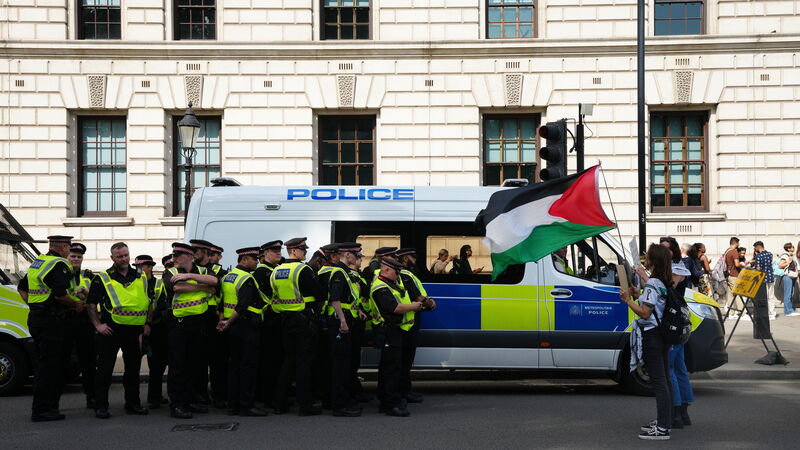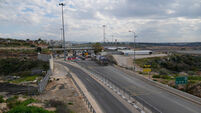Palestine Action's civil disobedience overwhelming London police

Police officers with demonstrators as people take part in a Lift the Ban on Palestine Action protest organised by Defend our Juries in Parliament Square in London on September 6.
When the British government banned the relatively obscure protest group Palestine Action, it is likely they did not foresee it igniting months civil disobedience. But since August, the protest group Defend our Juries have gathered in Parliament Square in London on the anniversary of the ban, and raised signs in support of Palestine Action, leading to their arrest on terrorism charges.
For the next two weekends, this civil disobedience will return again to put pressure on the UK government to remove the proscription of Palestine Action and change its policy on supplying weapon systems to Israel.
















